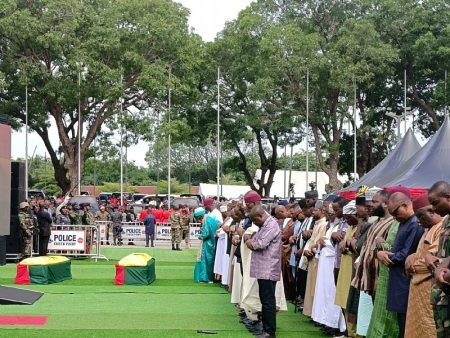The recent announcement by President John Dramani Mahama to discontinue fuel allowances for political appointees has been met with skepticism and criticism, particularly from Vincent Ekow Assafuah, the Member of Parliament for Old Tafo. Assafuah argues that this move is a mere repetition of a failed tactic employed by Mahama in the past, specifically referencing a 2013 initiative where the President announced a 10% salary reduction for political appointees to fund the construction of Community-based Health Planning and Services (CHPS) compounds. Assafuah alleges that this earlier initiative was ultimately undermined, with many appointees secretly opting out and receiving refunds, thereby negating the intended sacrifice and raising questions about the sincerity of the government’s commitment to fiscal responsibility.
The core of Assafuah’s critique revolves around the perceived hypocrisy of the current fuel allowance cancellation. He points to the alleged failure of the 2013 salary reduction initiative as evidence of a pattern of symbolic gestures that lack genuine commitment. The MP claims that many appointees, with the alleged approval of then-Chief of Staff Julius Debrah, quietly withdrew from the salary reduction scheme and received refunds. This, according to Assafuah, renders the publicized sacrifice a mere facade, designed to generate positive headlines while failing to achieve any meaningful impact on public finances. Furthermore, Assafuah questions the current directive’s scope, suggesting that the President himself is exempt from the fuel allowance cancellation, further reinforcing the perception of a performative measure rather than a genuine commitment to shared sacrifice.
The timing of the announcement, amid economic challenges, also contributes to the skepticism surrounding the initiative. Critics like Assafuah view the move as a belated and superficial attempt to address deeper systemic issues of wasteful spending within the government. The cancellation of fuel allowances is presented as a quick fix, a readily apparent measure designed to project an image of fiscal prudence. However, the alleged history of similar initiatives failing to achieve their stated objectives casts doubt on the long-term impact of this decision. Instead of addressing the root causes of economic hardship, Assafuah argues that the government is engaging in superficial measures designed to appease public discontent without enacting meaningful reforms.
Beyond the specific issue of fuel allowances, the broader concern raised by Assafuah is the erosion of public trust in the government’s commitment to fiscal responsibility. The alleged backtracking on the 2013 salary reduction initiative, combined with the perceived limitations of the current fuel allowance cancellation, contribute to a narrative of inconsistency and a lack of transparency in government actions. This perceived lack of transparency fuels skepticism and raises questions about the sincerity of government pronouncements regarding fiscal austerity measures. The repeated use of similar cost-cutting announcements further reinforces the perception that these are merely reactive measures designed to manage public perception rather than address underlying structural issues.
The broader context of the fuel allowance cancellation involves a series of austerity measures announced by the government, including downsizing government staff and canceling satellite TV subscriptions for state institutions. While presented as part of a comprehensive effort to curb wasteful spending, these measures are viewed by some critics as insufficient to address the fundamental economic challenges facing the country. Assafuah’s criticisms highlight a broader concern that the government is focusing on superficial cost-cutting measures rather than addressing systemic issues of inefficiency and mismanagement. The cancellation of fuel allowances, while potentially impactful, is seen as a symbolic gesture that fails to address the deeper structural issues that contribute to economic hardship.
In conclusion, the controversy surrounding the cancellation of fuel allowances for political appointees underscores a deeper issue of public trust and the perceived disconnect between government pronouncements and actions. Assafuah’s allegations regarding the 2013 salary reduction initiative raise serious questions about the government’s commitment to genuine fiscal responsibility. The current fuel allowance cancellation, viewed within this context, is perceived not as a genuine sacrifice but rather as a recycled tactic designed to generate positive publicity without addressing the underlying issues of wasteful spending and mismanagement that continue to plague the economy. The skepticism surrounding this initiative underscores the need for greater transparency and accountability in government actions to rebuild public trust and address the underlying economic challenges facing the country.














